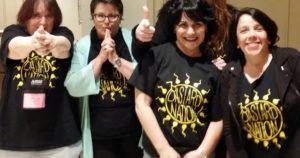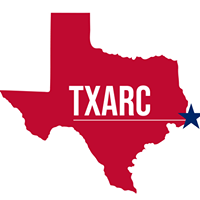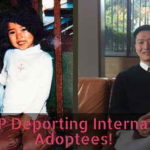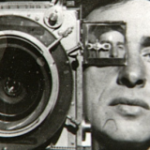The Right to Know
The heart of the adoption issue: Does the right to privacy outweigh the right to know?
By Colleen Van Tassell
Four years ago, a stranger called Patricia Austin and asked: Does April 22, 1963, ring a bell? The stranger told her that the daughter she gave up for adoption had been looking for her.
Austin, a psychologist, filed suit in Florida against Virginia Snyder, the 77-year-old investigator, alleging invasion of privacy and intentional infliction of emotional distress. The suit claims Snyder used information that was illegally obtained from the court file. Austin also says Snyder “coerced and psychologically terrorized her into talking to her.”
Snyder says she used a copy of a marriage license, not information obtained from sealed records, to find Austin.
In an interview with the Associated Press, Austin’s 35-year-old daughter claims she “just wanted to know something about her history.” She and Snyder say Austin was shocked but pleased when contacted, and that the birth mother and daughter maintained a telephone relationship for several months.
This suit — the first of its kind, according to the Evan B. Donaldson Adoption Institute in New York, which provides extensive research and statistical data — goes to the heart of the adoption issue. Does the right to privacy outweigh the right to know?
Legal guidelines for relations between birth parents and the children they surrendered date back to the Code of Hammurabi, the oldest written set of laws. Contemporary laws governing adoption searches range from strict to somewhat relaxed. Just recently, Oregon joined Alaska and Kansas in throwing open birth certificates to adoptees. Sponsors of Measure 58 took their case directly to voters, instead of the traditional route through legislators and the courts.
The trend is toward increased openness. A growing number of adoptees today can get access to information on their backgrounds. All adoptees are provided with complete medical histories. A far cry from post-war adoption stigmas, which fostered the secrecy surrounding today’s adoptees.
According to Wayne E. Carp, author of Family Matters: Secrecy and Disclosure in the History of Adoption, pre-World War I babies were raised by family members they knew, maintaining a relationship with them. As years progressed, doctors, social workers and lawyers arranged homes for the babies, matching their physical traits and ethnicity to pass as blood relations.
The ’50s, with its reverence of mother and nuclear family values, flooded the adoption process with clandestine attitudes and policies. Adoption agencies and lawyers clammed up.
Some states are now trying to circumvent their own sealed-records laws by setting up registries in which children and birth parents may put their names on a list designed to help them find each other, but often they go unpublicized. Some states have established systems in which third parties conduct searches and arrange reunions if both birth parents and children agree.
None of those is an acceptable substitute for open records, according to Bastard Nation.
“Great Britain, China, Argentina, England, Scotland, Korea all have open records. Why don’t we?” says Damsel Plum, spokeswoman for Bastard Nation and a Yale grad. “Clerks have more information about us [adoptees] than we do.”
Patterned after the gay-rights group Queer Nation, Bastard Nation is the nation’s largest and most vocal nonpartisan adoptee activist organization and reunification movement. What started online has developed into a powerhouse group in the flesh, from mass mailings to demonstrating at the Oscars to having members appear on MSNBC.
Bastard Nation’s agenda is simple: The organization wants open records for adult adoptees, support for searches and reunions and freedom of expression about the adoption experience. No exceptions.
In 1997, Bastard Nation waged war against American Greetings for a Valentine’s card that read: “Sis, even if you were adopted I’d still love you.” Inside: “But come to think of it you don’t really look like mom and dad.” The company discontinued the card and issued a public apology. It only took one week from the time BN posted the complaint.
The religious right dismisses BN as a veil for a pro-abortion agenda. Some American Civil Liberties Union chapters also oppose Bastard Nation’s agenda in favor ofbirth parents’ privacy.
“We’ve been called lots of things,” says Plum. “We only want documents that can be accessed by anyone.”
The American Adoption Congress estimates there are more than 5 million adoptees in the U.S. As many as 88,000 adoptees per year search for their origins. In a recent study of American adolescents, the Search Institute found that 72 percent of adopted adolescents wanted to know why they were adopted, 65 percent wanted to meet their birth parents and 94 percent wanted to know whom they looked like.
If obsolete adoption laws remain, today’s statistics may be tomorrow’s bastard nation.
The biggest mouthpiece against open records is Bill Pierce, president of the National Council on Adoption in Washington. His conservative organization argues that if birth mothers are not guaranteed secrecy, they will opt to abort or neglect. NCA employs full-time paid lobbyists and bombards states contemplating legislative change, such as making the adoptee’s original birth certificate available to the adoptee.
The NCA is one of the biggest supporters of the Uniform Adoption Act, which proposes sealing adoption records for 99 years, criminalizes searching, shortens revocable consent periods to eight days from the birth (not relinquishment) of the child and does not define non-identifying information. The act allows a birth mother to relinquish a child without the father’s consent if she states that she doesn’t know his identity or whereabouts. Most states have rejected the model act.
Bastard Nation, <http://bastards.org>, 454 Las Gallinas Ave. Suite 199, San Raphael CA 94903
What State Law Says About Adoptees’ Rights
By Colleen Van Tassell
Under Connecticut law, adult adoptees, adoptive parents and “adult adoptable persons” — people whose parents’ parental rights were terminated, but who were not adopted — are entitled to any “non-identifying information” the state has. Non-identifying information includes: the age of birth parent at the time of surrender, education,race/ethnicity, general physical description, hobbies, talents, special interests, reason for placement, existence of siblings, occupation, religion, health history, information on how the adoption plans were handled, relationship between birth parents and “other.” Sometimes similar information about other blood relatives will also be revealed if available.
You can also request identifying info, although you may or may not get it. Adoptees who are 18 and older and adult adoptable persons can send a written request for identifying information to the agency or department that has it, such as the adoption agency. The agency will then conduct a search. If both parents consent, the information will be released. If the agency believes the information “would be seriously disruptive or endanger the physical or emotional health” of the adoptee, counseling is required before the information is released.
When the agency can’t locate the birth parents, you can petition the court for the release of identifying information. The court will ask your reasons for requesting it. The agency can make a recommendation, and then the court will decide whether to grant the petition. If the court denies the request, it will sometimes ask the agency to tell your birth parent about your request, without revealing your identity.
If you’re an “adult adoptable person,” you can get a copy of your original birth certificate from the Department of Health Services. For information about the reunion registry, contact the state Department of Children and Families, Adoption Resource Exchange, 505 Hudson St., Hartford, Conn. 06106, (800) 842-6347.
Connecticut Search Resources:
- The most comprehensive resources can be found at the Adoption Search & Reunion website, which has dozens of useful links.<www.highfiber.com/~rema/>
- Connecticut Department of Vital Statistics: births or deaths since July 1897. Vital Records Section, Department of Health Services, 150 Washington Street, Hartford, Conn. 06106
Support groups:
- Adoption Answers Support Kinship, 8 Homestead Dr., So. Glastonbury, 657-4005
- Village For Families and Children, 1680 Albany Ave., Hartford, 297-0582.
- After You Adopt, Paula Montes, 673-8759


 New York Adoptee Rights Coalition
New York Adoptee Rights Coalition











